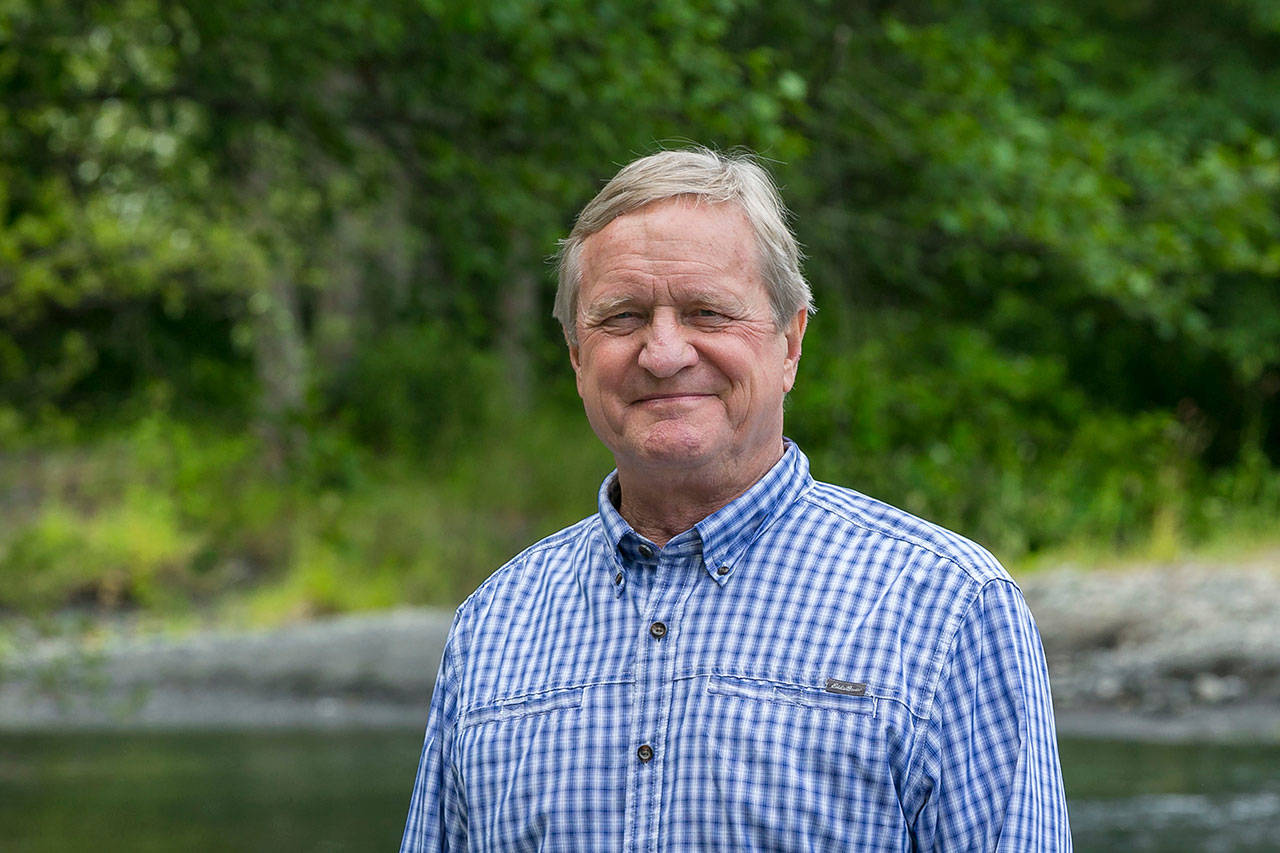Steve Tharinger, D-Sequim, said he wants to continue work to secure funding for important local projects in the 24th Legislative District, such as the North Shore Levee in Hoquiam and Aberdeen, and believes he’s in a good spot to do that as he seeks re-election for a fifth term as a state representative.
Running against Republican challenger Jim McEntire, Tharinger told The Daily World that experience plays a big role in why he’s the best candidate to continue in his role.
“Experience matters here, and it takes a while to learn the game board in Olympia,” said Tharinger. “There are a lot of moving parts, the lobbyists, the members. The policies can get fairly challenging, and in the last eight years, I think I’ve put myself in a position to really help the district as we move forward.”
Tharinger has moved up to be chairman of the important House Capital Budget committee, and is a member of the Healthcare and Appropriations committees. Because he’s chairman of the Capital Budget committee, Tharinger said it can be very beneficial toward securing funds for local projects like the planned North Shore Levee — which is intended to stop flooding in low-lying neighborhoods. The project would remove thousands of houses in Aberdeen and Hoquiam from FEMA’s floodplain map and eliminate their flood insurance requirements.
“Having been (in the Legislature) long enough, and having the respect of other members, I think that makes me pretty effective,” said Tharinger. “Quite frankly, I don’t think my opponent has made the case for change, I don’t think he’s made a strong enough argument.”
Prior to his eight years as a legislator, Tharinger owned his own wood manufacturing business near Sequim, and then served as a Clallam County Commissioner for 12 years.
Tharinger said he’s also working on some changes to help make taxation more equitable in the state, and is considering implementing a 2.7 percent annual excise tax on couples making $500,000 in capital gains and single people making $250,000 on capital gains. Whereas income taxes occur annually for everyone, this kind of excise tax would only apply when someone makes a large financial transaction.
Tharinger said that Washington State currently has “the most regressive tax structure in the country,” and that adding a capital gains tax would help balance this inequity.
“Right now the lowest 20 percent of the population in the state pays 17 percent of their income in taxes, whereas the upper one percent pays about two (percent of their income),” said Tharinger. “The idea is how do we make that more equitable and fair?”
If the capital gains tax were approved, Tharinger said the legislature would then consider exemptions to the tax, and provided examples like someone selling their business that contains all of their retirement funds and life saving, or for the timber industry that often needs to make transactions by selling logs.
In talking about school funding from the state, Tharinger said there is still some work to be done both with operational cost funding and capital projects. Particularly with capital project funding, Tharinger said the state’s system for school construction assistance is “pretty convoluted.” Tharinger added that he set up a bi-partisan task force to look at ways to revise the state’s funding formula to provide more clarity.
When asked about Initiative 1631 — a statewide carbon tax — Tharinger said he’s still undecided on whether he’ll vote for it, but added that something needs to be done to combat climate change.
“We have to do something about carbon, there’s no question about it,” he said. “The impact of sea level rise, and acidification if you look at the oyster industry, is really impacted by the high carbon content in the ocean. But it’s a complicated policy, and I’m not convinced an initiative is a best way to go on this.”



